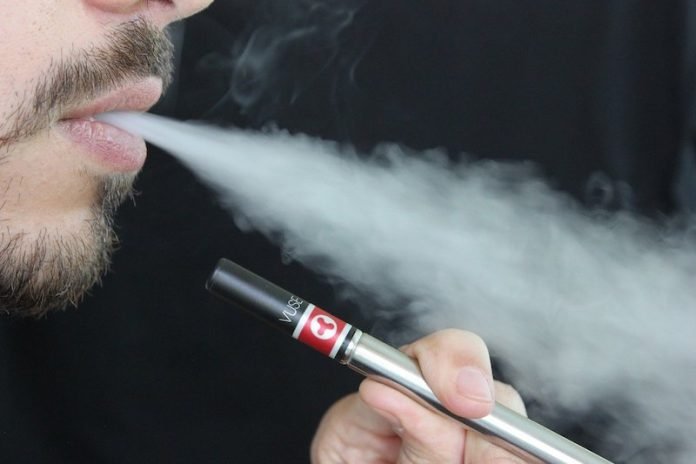
Although e-cigarettes have been on the market for years, recent reports of vaping-linked illnesses have brought serious attention to these products.
More than 2,000 people in the United States have been diagnosed with a condition called EVALI, or e-cigarette or vaping product use associated lung injury.
According to the Centers for Disease Control and Prevention (CDC), this includes:
Cough, shortness of breath or chest pain
Nausea, vomiting or diarrhea
Fatigue, fever or weight loss
Some users have reported their symptoms developed over a few days, while others report symptoms developing over several weeks.
Among those who have been hospitalized, many have developed acute respiratory distress syndrome, a life-threatening condition in which fluid build-up in the lungs prevents oxygen from circulating properly.
More than 40 deaths have been attributed to this condition, including three in Massachusetts.
Together with the U.S. Food and Drug Administration (FDA), state and local health departments, the CDC has launched an investigation to determine the underlying cause of EVALI.
While this investigation is ongoing, the CDC cautions people to consider not using e-cigarette products.
“The chemicals found in e-cigarettes are not regulated by the FDA, and harmful ingredients such as formaldehyde are being identified,” says BIDMC thoracic surgeon Jennifer Wilson, MD.
“The truth is that the science, safety and regulations of e-cigarettes are lagging behind — unfortunately, the most vulnerable people, including teenagers, may suffer the consequences.”
Many users see vaping as an alternative to smoking or a way to quit. But as Wilson explains, due to higher nicotine contents found in some e-cigarettes, they can actually worsen the addiction.
“We are telling patients that if you do not currently use tobacco products, do not start using e-cigarette products. And if you are using e-cigarettes, you should consider stopping,” she says.
BIDMC pulmonologist Sean Levy, MD, adds that many of the EVALI cases are linked to e-cigarette products that were bought on the streets.
“Reports indicate that many of those who have been hospitalized were using cartridges from non-regulated sources containing THC, the active ingredient in marijuana.
This is significant because if it wasn’t obtained legally at a dispensary, there is no way to be certain what other chemicals could be in it,” he says.
The CDC recently released data from testing of patients with EVALI. Patients from 10 states tested positive for vitamin E acetate in their lung fluid, suggesting a likely link between EVALI and the vitamin E acetate.
Vitamin E acetate is typically found in nutritional supplements and cosmetic products, such as skin creams. This thick, oily substance is also sometimes added to vaping product cartridges as a thickening agent.
“When ingested orally or applied to the skin, vitamin E acetate is not dangerous,” Levy explains.
“But it is not safe when inhaled because it can stick to the lining of your lungs, causing inflammation and affecting your breathing.”
Although this potential link is promising, the CDC cautions that other additional substances have not yet been ruled out.
“There is no mandate for vitamin E acetate testing in vaping products, which means it’s possible that it could be in a product that you’ve purchased legally from a vaping shop or marijuana dispensary,” Levy adds.
“It’s best to avoid e-cigarette products altogether, especially while the CDC’s investigation is ongoing.”
If you currently use e-cigarette products and have been experiencing new symptoms, such as coughing, difficulty breathing, or increased heart rate, make an appointment with your doctor.
If these symptoms worsen or you feel very ill, seek emergency medical care.



